Are you confused about this question in your mind” Are keywords And SEO The Same Thing”. So let’s clear up this confusion. You are on the right platform to search for answers to your confusion. Keywords and SEO are similar yet different. After reading this comprehensive blog post you will be able to differentiate them. It is sometimes confusing to understand how these keywords work for your site. To clarify, think of keywords as the fuel, and SEO as the engine to help your website rank high on search results. But we have to make sure that both search engines like Google and your audience notice your site. It looks confusing and amazing too, right?
Well, let’s get started and make it slightly more simple. Whether you are just a newbie in the world of digital marketing or trying to make things much better, you have reached the right place. In this blog post, we are going to explain what keywords are and why they are so important to us. As we go further, we can visualize all of this by relating to how SEO makes your website succeed. Now that you are going to be prepared on how to use both keywords and SEO to shine your online presence, let’s get started!
Explore more: Keyword Research Tool
What Are Keywords?
Keywords can be defined as the words or phrases a person writes in search engines while trying to look for something. For example, a person searching for a pizza recipe may type either a simple search, “best pizza recipe” or he may type “easy pizza dough” for a specific search. Which words do they put into the search bar, those are keywords.
When you create content for your website, you want to include all the keywords your audience is looking for so that search engines can easily connect those dots and know what people are looking for and the content you have created. Without keywords, your website may lose its position in the vast sea of online content.
Think of keywords as the GPS that guides people to your content.
What is SEO?
SEO stands for Search Engine Optimization and is mainly about helping your website appear higher on search engines like Google. It is more than just keyword use, it involves improving various aspects of a website and raising your ranking to attract visitors.
SEO includes
1. On-page SEO
Refers to the optimization of individual pages on your site using keywords, high-quality content, and titles and meta descriptions.
2. Off-page SEO
This increases the authority of your website using things like backlinks (when other websites link to yours) and social signals.
3. Technical SEO
This means ensuring your website loads fast, works well on mobile devices and has clear code so search engines can explore it easily.
At Rakalogics, we know that good SEO is more than just an easy choice of keywords, but rather a full plan that helps people find your website easily, use it easily, and find useful content on it.
How Do Keywords and SEO Work Together?
Keywords and SEO are also not the same thing. Keywords are like the bread in a sandwich, and SEO is the entire sandwich including the meat, veggies, sauce, and everything else would be insufficient if it lacked bread. You can’t have one without the other.
Optimizing your website does not necessarily mean you are trying to load a page with a few keywords and walk away. Ensure that the keywords you use are relevant, placed naturally, and help the search engines understand the whole topic your page is talking about.
For example, if I were running a fitness blog, the primary keyword would be “workout tips,” but other keywords such as “exercise routines” or “home workouts” may sometimes be useful. These are secondary keywords that help a search engine understand that your content is relevant to a range of diverse topics.
Why Are Keywords Still Important in SEO?
A common misunderstanding is that keywords no longer matter. While it is true that Google has become smarter and can understand the intent behind searches. So, keywords still play an important role in SEO.
Here is why
1. Keywords to describe your content
They act as a guide for search engines like Google to understand and rank your content.
2. They help people find you
Using the right keywords ensures that your content shows up when people search for that information, product, or service.
3. They define your niche
Specific long-tail keywords like “best yoga exercises for flexibility” help you target a specific audience within a niche market.
In short, keywords are still essential for getting found online!
How Do Keywords Influence SEO Strategies?
Keywords are the heart of any SEO strategy. They help define the focus of your content and signal to search engines what your pages are about. When used correctly, keywords can
- Guide search engines to categorize your content.
- Help you rank for specific terms and phrases.
- Drive organic traffic to your site.
That is why keyword research will be important before you create content. If you know what your audience is searching for, you can create optimized content that answers questions from them.
How to Do Keyword Research
Keyword research is a little similar to embarking on an exciting journey. It’s like you need the right equipment, and then you need to have a proper route. If you execute everything correctly, you should be able to find effective keywords to boost your ranking on the site.
How to Get Started
1. Start with broad topics
Narrow the main subjects related to your business. For instance, if you run a bakery, your topics will include “cake recipes,” “baking tips,” or “pastries.”.
2. Keyword tools In SEO
Examine the keyword tool websites such as Google Keyword Planner, Ahrefs, and SEMrush, and find related keywords to your themes. It also points out how often people search for it and how competitive it is.
Read more: Keyword Competition Checker Tool
3. Target Long-tail Keywords
These phrases are usually more specific, which means that there may be less competition. These phrases might not be searched a lot, but they rank very easily and convert better as they are closer to making a purchase.
By doing this, you will find those deep, golden keywords that can help your website shine!
Keyword Research Tools
Here’s a quick review of some popular keyword research tools
| Tool | Description | Cost |
| SEMrush | A comprehensive tool with various features | Paid |
| Ahrefs | Great for backlink analysis and keyword research | Paid |
| Google Keyword Planner | Free tool ideal for PPC and organic keyword research | Free |
| Ubersuggest | User-friendly tool with limited free searches | Free/Paid |
Common Mistakes with Keywords and SEO
Even professional marketers make mistakes! Here are some common mistakes
Ignoring Long-Tail Keywords
These can drive targeted traffic but often get ignored.
Not Updating Keywords Regularly
Trends change, so keep your keyword strategy fresh!
Forgetting User Intent
Always consider what users want when searching for a keyword.
Using Keywords Effectively
You have your list of keywords. Now it’s time to use them! But remember, it’s not about adding them everywhere. It’s called keyword stuffing, and it’s a mistake. Search engines dislike it, and it makes your content look spammy.
Here’s how to use keywords effectively
1. Use them naturally
Add keywords in a way that feels smooth and fits the flow of your writing. Avoid forcing them in!
2. Title tags and meta descriptions
Place your main keywords in the title tags and meta descriptions to attract clicks.
3. Headings and subheadings
Using keywords in headings and subheadings helps to organize your content and makes it easier to read.
Avoid keyword stuffing, as it can hurt your rankings and make your content look unprofessional. Keep it natural, and your writing will shine!
Find out more: How To Get SEO Clients | Proven 25 Ways In 2024
How to Find the Right Keywords
Finding the right keywords can seem difficult, but it doesn’t have to be! Here are some tips
1. Analyze your Competitors
Look at what keywords your competitors rank for and what kind of gaps are there in their strategy.
2. Think Like Your Audience
Consider what questions or phrases your audience might use when looking for services like yours.
3. Use SEO Keyword Research Tools
SEMrush, Ahrefs, and Google Keyword Planner can find popular keywords for any topic.
The Changing Role of Keywords in SEO
In the early days of Search Engine Optimization, stuffing the page with as many keywords as possible was good enough. Now, due to changes in search engines over time, it is much more about intent than just a keyword match.
Google’s algorithms have been designed with the capability of understanding what the person is looking for. In that way, they are not after an exact keyword search are after how much meaning the search makes. So, if one writes a long very complicated question, Google tries to send them the most relevant content, though the content doesn’t contain their exact words.
That is why it’s really important to write for humans first, and search engines second.
Read more: Best Content Marketing Agencies You Need To Hire
Why SEO Is More Than Just Keywords
Keywords are not everything. So many other pieces of the puzzle have to be put into the right place if you want to rank well in search results. Good SEO is, in fact, all about creating an excellent experience for your visitors. That means building a fast site that works on any device, ideally conducting well on navigation. All of these provide incredibly valuable and engaging content that answers the questions of your audience and solves their problems. Make your users happy, and you indirectly improve your SEO while keeping them coming back again and again!
For example, at Rakalogics, we offer full-service SEO strategies that cover everything from keyword research to technical SEO. We know it’s not enough to just target the right keywords, you need a website that runs smoothly and content that keeps people coming back.
Read more: Keyword Density Tool
FAQs
Q1: How do keywords influence SEO strategies?
Keywords guide the content and structure of your SEO strategy. They help search engines understand your site’s focus, driving targeted traffic.
Q2: What are the best tools for finding relevant keywords in SEO?
Popular tools include Google Keyword Planner, Ahrefs, SEMrush, and Moz. These platforms provide data on keyword volume and competition.
Q3: How do I measure my performance Of SEO keywords?
Consider viewing your keywords as effective if your website is ranking for key phrases of interest and is gaining traffic with the help of tools like Google Analytics.
Q4: What are the differences between relevant terms and proof terms?
Relevant terms are closely related to your main keywords. Proof terms are additional words or phrases that validate the context of your content.
Q5: How do I choose good SEO keywords in my content?
Pick keywords relevant to your content, have a low level of competition, and reflect the search intent of your audience.
Q6: Differentiate between Short-tail and Long-tail keywords in SEO.
Short-tail keywords are general words (such as “pizza”). Long-tail keywords are more descriptive (for example, “best spicy cheesy pizza recipe”).
Q7: Can I rank on Google without using keywords?
Keywords are the least likely. Keywords tell the search engine what your content is about. Thus, keywords are the most significant element in ranking.
Q8: How often should I use my SEO keyword?
Focus on using it naturally. There’s no set number, but try to include them in key places like the title, headers, and body.
Q9: What happens if I overuse keywords in SEO?
Overuse of keywords is also going to have a bad impact on rankings because search engines can identify your content as spammy.
Q10: How long does SEO take?
SEO is a long-term strategy. It can take between a few months to a year to see noticeable results.
Conclusion About Keywords And SEO
So, are keywords and SEO the same thing? No, but they are not closely related. Imagine keywords as the foundation and SEO as the whole building. Without both of them, it’s pretty hard to succeed in the world of digital marketing.
Increase visibility, drive more traffic, and grow your business using smart keyword strategies and optimization techniques aligned with SEO best practices. We know that each business has its own unique strategies implemented to get very effective results, and that’s exactly what Rakalogics is here to offer.
Keep in mind, however, that adding as many keywords as possible to your content is not a good idea but rather making it attractive, natural, and useful. Well-optimized content will be equally rewarding for users and search engines.
We have tried to make everything easy for you but still, if you have any queries feel free to use the comment section below.
Read More: SEO Free Keyword Research Tools





